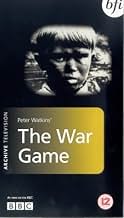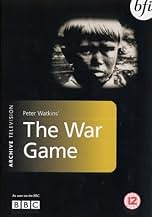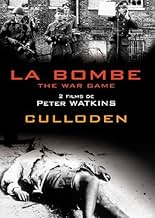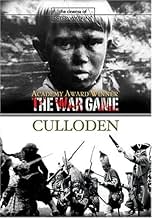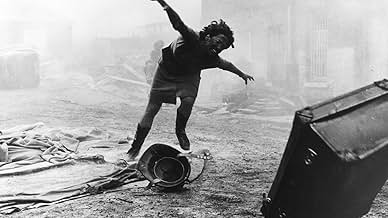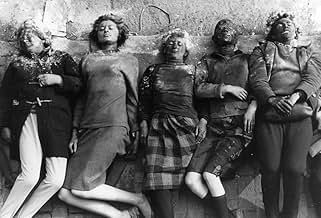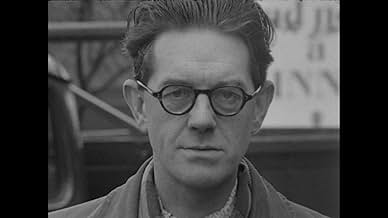The War Game
- 1966
- 48m
IMDb RATING
7.9/10
7.5K
YOUR RATING
A docudrama depicting a hypothetical nuclear attack on Britain.A docudrama depicting a hypothetical nuclear attack on Britain.A docudrama depicting a hypothetical nuclear attack on Britain.
- Won 1 Oscar
- 5 wins total
Dave Baldwin
- Schoolmaster
- (uncredited)
- …
Kathy Staff
- Interviewee
- (uncredited)
Peter Watkins
- Documentist
- (uncredited)
- Director
- Writer
- All cast & crew
- Production, box office & more at IMDbPro
Storyline
Did you know
- TriviaAfter it won an Oscar for Documentary Feature, the Academy of Motion Picture Arts and Sciences changed the eligibility rules for the category.
- GoofsLight can be seen reflecting off a woman's "broken" teeth.
- Quotes
Scientist: Technically and intellectually, we are living in an atomic age. Emotionally, we are still living in the Stone Age. The Aztecs on their feast days would sacrifice 20,000 men to their gods in the belief that this would keep the universe on its proper course. We feel superior to them.
- Alternate versionsSome prints replace the stills of Lyndon B. Johnson and Alexey Kosygin with stills of the White House and the Red Square
- ConnectionsFeatured in Peter Watkins Reflects on 'The War Game' and the Media (1983)
- SoundtracksStille Nacht, heilige Nacht (Silent Night, Holy Night)
(uncredited)
Music by Franz Xaver Gruber
Lyrics by Joseph Mohr
Played on phonograph at Dover refugee compound
Featured review
Although this film clocks in at a mere 48 minutes, not a scene, second or frame is put to waste. A level-headed and all too analytical examination of civil preparedness versus the yield of nuclear weapons. What this film presents is the absolute horror of nuclear war in simulated newsreel footage so realistic, you may feel the pain of those on screen. Fire-storms, asphyxiation, flash-burns, over-burdened hospitals leaving victims to die in pain, street executions under martial law, total social collapse, all filmed in a typical English suburb. Originally planned to be a simple documentary on nuclear warfare made for BBC-TV, the film was banned from television (officially because of it's graphic depictions of suffering, but most likely for it's anti-authoritarian stance and defiance of the official line). Later released to theaters, it went on to win major film awards. Two scenes in particular, one of men being executed for violating water rationing and an interview with children at a medical camp, haunted me for days. This is the great-grandfather of such films as "Threads" and "The Day After", but the matter-of-fact narration in BBC English to the devastation on screen adds an element of sheer horror that no other film comes close to. If anyone you know talks about the survivability of nuclear attack, show them this film, and watch their reaction. This film is too important to ignore, and too powerful to dismiss.
Details
- Runtime48 minutes
- Color
- Sound mix
- Aspect ratio
- 1.37 : 1
Contribute to this page
Suggest an edit or add missing content


